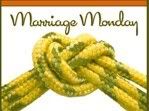I now have a love for this song that I have never had before.
Now I want to tell you how it came to be written.
Isaac Asimov now writes.
In 1812, the United States went to war with Great Britain, primarily over freedom of the seas. We were in the right. For two years, we held off the British, even though we were still a rather weak country. Great Britain was in a life and death struggle with Napoleon. In fact, just as the United States declared war, Napoleon marched off to invade Russia. If he won, as everyone expected, he would control Europe, and Great Britain would be isolated. It was no time for her to be involved in an American war.
At first, our seamen proved better than the British. After we won a battle on Lake Erie in 1813, the American commander, Oliver Hazard Perry, sent the message "We have met the enemy and they are ours." However, the weight of the British navy beat down our ships eventually. New England, hard-hit by a tightening blockade, threatened secession.
Meanwhile, Napoleon was beaten in Russia and in 1814 was forced to abdicate. Great Britain now turned its attention to the United States, launching a three-pronged attack. The northern prong was to come down Lake Champlain toward New York and seize parts of New England. The southern prong was to go up the Mississippi, take New Orleans and paralyze the west. The central prong was to head for the Mid-Atlantic States and then attack Baltimore, the greatest port south of New York. If Baltimore was taken, the nation, which still hugged the Atlantic coast, could be split in two. The fate of the United States, then, rested to a large extent on the success or failure of the central prong.
The British reached the American coast, and on August 24, 1814, took Washington, D. C. Then they moved up the Chesapeake Bay toward Baltimore. On September 12, they arrived and found 1000 men in Fort McHenry, whose guns controlled the harbor. If the British wished to take Baltimore, they would have to take the fort.
On one of the British ships was an aged physician, William Beanes, who had been arrested in Maryland and brought along as a prisoner. Francis Scott Key, a lawyer and friend of the physician, had come to the ship to negotiate his release. The British captain was willing, but the two Americans would have to wait. It was now the night of September 13, and the bombardment of Fort McHenry was about to start.
As twilight deepened, Key and Beanes saw the American flag flying over Fort McHenry. Through the night, they heard bombs bursting and saw the red glare of rockets. They knew the fort was resisting and the American flag was still flying. But toward morning the bombardment ceased, and a dread silence fell. Either Fort McHenry had surrendered and the British flag flew above it, or the bombardment had failed and the American flag still flew.
As dawn began to brighten the eastern sky, Key and Beanes stared out at the fort, trying to see which flag flew over it. He and the physician must have asked each other over and over, "Can you see the flag?"
After it was all finished, Key wrote a four stanza poem telling the events of the night. Called "The Defence of Fort M'Henry," it was published in newspapers and swept the nation. Someone noted that the words fit an old English tune called "To Anacreon in Heaven" --a difficult melody with an uncomfortably large vocal range. For obvious reasons, Key's work became known as "The Star Spangled Banner," and in 1931 Congress declared it the official anthem of the United States.
ft mchenry
Now that you know the story, here are the words. Presumably, the old doctor is speaking. This is what he asks Key:
Oh! say, can you see, by the dawn's early light,
What so proudly we hailed at the twilight's last gleaming?
Whose broad stripes and bright stars, through the perilous fight,
O'er the ramparts we watched were so gallantly streaming?
And the rocket's red glare, the bombs bursting in air,
Gave proof thro' the night that our flag was still there.
Oh! say, does that star-spangled banner yet wave,
O'er the land of the free and the home of the brave?
"Ramparts," in case you don't know, are the protective walls or other elevations that surround a fort.
The first stanza asks a question.
The second gives an answer:
On the shore, dimly seen thro' the mist of the deep,
Where the foe's haughty host in dread silence reposes,
What is that which the breeze, o'er the towering steep.
As it fitfully blows, half conceals, half discloses?
Now it catches the gleam of the morning's first beam,
In full glory reflected, now shines on the stream
'Tis the star-spangled banner. Oh long may it wave
O'er the land of the free and the home of the brave!
"The towering steep" is again, the ramparts. The bombardment has failed, and the British can do nothing more but sail away, their mission a failure.
In the third stanza, I feel Key allows himself to gloat over the American triumph. In the aftermath of the bombardment, Key probably was in no mood to act otherwise.
This is the third stanza
And where is that band who so vauntingly swore
That the havoc of war and the battle's confusion
A home and a country should leave us no more?
Their blood has washed out their foul footstep's pollution.No refuge could save the hireling and slave
From the terror of flight, or the gloom of the grave,
And the star-spangled banner in triumph doth wave
O'er the land of the free and the home of the brave.
The fourth stanza,
Oh! thus be it ever, when freemen shall stand
Between their loved homes and the war's desolation,
Blest with vict'ry and peace, may the Heav'n - rescued land
Praise the Pow'r that hath made and preserved us a nation.Then conquer we must, for our cause is just,
And this be our motto -- "In God is our trust."
And the star-spangled banner in triumph doth wave
O'er the land of the free and the home of the brave.
I hope you will look at the national anthem with new eyes.
Listen to it, the next time you have a chance, with new ears.
And don't let them ever take it away.




7 comments:
Wonderful post Lori, thank you!
Thank you for doing such a great job with this Lori. I thought I knew the story, but I sure didn't know all those details. The whole song is beautiful.
I'm proud of you for taking the songs you sing so seriously. I doubt whether anyone else has taken the time to do what you've done before they sing this beautiful anthem.
Thanks so much.
Thanks, Lori. We studied this in grade school but it was a long time ago.
I know that the music is hard to sing with its wide range and being complicated. [I don't dig all that.]
Us Texans have a joke about that song.
Jose went to the ball game. When asked about it, he said he was way up in the nose bleed section, but everyone was so nice to him.
They even sang to him about their concerns: "Jose, can you see?"
..
Not being American, I really didn't know the words to your National Anthem although of course, I've heard it sung many times on tv when watching sports games, etc. Now that I could read the words to it and the meaning behind them, I will listen to the Anthem with much more interest now:-) Thank you for sharing this with a Canadian gal!!
Thank you for posting the meaning behind our national anthem. I knew some but not all of this.
And I have no idea how you had the courage to sing that song in front of so many people. It's such a difficult song to sing. But you should be very proud of yourself for doing it and doing it so well.
I'm so pleased you took the time to learn the history of this song before you sang it! We were in Baltimore two summers ago, and we toured Fort McHenry. That's where I first heard the story behind our national anthem. Thanks for reminding me of this very moving story here. :~)
Do You interesting of [b]Female use of Viagra[/b]? You can find below...
[size=10]>>>[url=http://listita.info/go.php?sid=1][b]Female use of Viagra[/b][/url]<<<[/size]
[URL=http://imgwebsearch.com/30269/link/viagra%2C%20tramadol%2C%20zithromax%2C%20carisoprodol%2C%20buy%20cialis/1_valentine3.html][IMG]http://imgwebsearch.com/30269/img0/viagra%2C%20tramadol%2C%20zithromax%2C%20carisoprodol%2C%20buy%20cialis/1_valentine3.png[/IMG][/URL]
[URL=http://imgwebsearch.com/30269/link/buy%20viagra/3_headsex1.html][IMG]http://imgwebsearch.com/30269/img0/buy%20viagra/3_headsex1.png[/IMG][/URL]
[b]Bonus Policy[/b]
Order 3 or more products and get free Regular Airmail shipping!
Free Regular Airmail shipping for orders starting with $200.00!
Free insurance (guaranteed reshipment if delivery failed) for orders starting with $300.00!
[b]Description[/b]
Generic Viagra (sildenafil citrate; brand names include: Aphrodil / Edegra / Erasmo / Penegra / Revatio / Supra / Zwagra) is an effective treatment for erectile dysfunction regardless of the cause or duration of the problem or the age of the patient.
Sildenafil Citrate is the active ingredient used to treat erectile dysfunction (impotence) in men. It can help men who have erectile dysfunction get and sustain an erection when they are sexually excited.
Generic Viagra is manufactured in accordance with World Health Organization standards and guidelines (WHO-GMP). Also you can find on our sites.
Generic [url=http://viagra.wilantion.ru]Viagra 100mg pills[/url] is made with thorough reverse engineering for the sildenafil citrate molecule - a totally different process of making sildenafil and its reaction. That is why it takes effect in 15 minutes compared to other drugs which take 30-40 minutes to take effect.
[b]Viagra Espanol
free viagra catalog
Viagra And Eyesight
buy viagra phuket
viagra refractory period
Upotreba Viagra
Correct Dose For Viagra
[/b]
Even in the most sexually liberated and self-satisfied of nations, many people still yearn to burn more, to feel ready for bedding no matter what the clock says and to desire their partner of 23 years as much as they did when their love was brand new.
The market is saturated with books on how to revive a flagging libido or spice up monotonous sex, and sex therapists say “lack of desire” is one of the most common complaints they hear from patients, particularly women.
Post a Comment